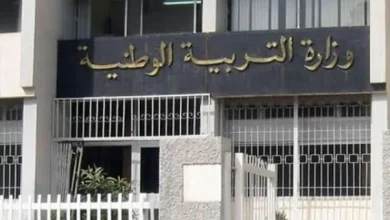The United States Embassy in Bamako has issued a stark warning to American citizens residing in Mali, urging them to leave the country “without delay” via commercial air travel. Citing a rapidly deteriorating security situation and increasingly precarious living conditions, the embassy’s advisory underscores the growing instability plaguing the West African nation.
In a statement released on Tuesday, the embassy emphasized that Bamako’s international airport remains operational with several available flights. However, it explicitly cautioned against overland travel to neighboring countries, deeming it “unsafe” due to the elevated risk of attacks along national roads. The embassy also highlighted its limited capacity to provide consular services or emergency assistance outside of the capital city. Americans who choose to remain in Mali were strongly advised to develop comprehensive contingency plans, including preparing for the possibility of sheltering in place for extended periods.
The embassy’s decision to recommend departure stems from a confluence of escalating challenges that exacerbate the country’s fragile state. The ongoing fuel crisis has crippled essential sectors, causing widespread disruptions. Frequent closures of public institutions, including schools and universities, have further destabilized daily life and heightened citizens’ sense of insecurity. Moreover, escalating clashes between government forces and armed groups in the vicinity of Bamako are contributing to a climate of uncertainty and volatility.
The U.S. government has also renewed its travel advisory for Mali, emphasizing that the conflict, previously concentrated in the northern and central regions, has now spread to encompass areas closer to the capital. Economic, logistical, and urban infrastructure are increasingly vulnerable to attacks, further jeopardizing the safety and security of residents and visitors alike.
Analysts suggest the current crisis extends beyond mere security concerns. The acute fuel and energy shortages expose a new dimension of strategic vulnerability, where logistical disruptions are weaponized to undermine the state’s stability. The convergence of service delivery collapse and heightened military activity presents a formidable challenge to Malian state institutions, testing their resilience and capacity to govern.
The fuel crisis, a significant contributing factor to the current instability, has been attributed to a combination of factors, including disruptions to supply routes caused by armed groups and alleged mismanagement of fuel reserves. The resulting scarcity has led to skyrocketing prices, impacting transportation, businesses, and essential services like healthcare. Hospitals have reported difficulties maintaining operations due to power shortages, and businesses have been forced to scale back or temporarily close, further exacerbating the economic hardship faced by many Malians.
Furthermore, the security situation in Mali has been deteriorating for years, despite the presence of international peacekeeping forces and military support from various countries. The proliferation of armed groups, including those affiliated with al-Qaeda and the Islamic State, has led to increased attacks on military and civilian targets. The Malian government has struggled to effectively counter these threats, particularly in the northern and central regions, where state control is weak.
For more information about Algeria, check our dedicated section.
The withdrawal of French troops from Mali in 2022, following a deterioration in relations between the two countries, has further complicated the security landscape. The departure of French forces has left a vacuum that armed groups have exploited, leading to an increase in violence and instability. The Malian government has turned to Russia for security assistance, including the deployment of Wagner Group mercenaries, a move that has been widely criticized by Western countries.
The political situation in Mali is also unstable, following two military coups in recent years. The current transitional government has pledged to hold elections in 2024, but there are concerns about the credibility and transparency of the electoral process. The political uncertainty has further fueled social unrest and instability, making it difficult for the government to address the country’s numerous challenges.
The U.S. Embassy’s warning reflects a growing concern about the safety and security of American citizens in Mali. The deteriorating security situation, the fuel crisis, and the political instability have created a volatile environment that poses significant risks to foreigners. The embassy’s recommendation to leave the country is a clear indication that the situation is not expected to improve in the near future.
It is important to note that the U.S. government has long advised against travel to Mali due to the security risks. The latest warning underscores the urgency of the situation and the need for American citizens to take immediate action to protect themselves. The embassy is providing assistance to American citizens who wish to leave the country, but it is ultimately the responsibility of each individual to make their own decisions based on their personal circumstances. The situation in Mali is dynamic and unpredictable, and it is crucial for American citizens to stay informed and take appropriate precautions.
The international community is closely monitoring the situation in Mali and is working to support the country’s efforts to restore stability and address the underlying causes of the conflict. However, the challenges are significant, and it is unclear when the situation will improve. In the meantime, the U.S. government is taking steps to protect its citizens and ensure their safety.



